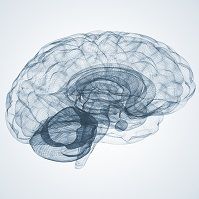Article
Females, Previous Psychiatric Patients at Greater Risk of Adverse Levetiracetam Effects
Author(s):
A cross-validated, stratified cohort found that certain epilepsy patient populations could be at a two-fold greater risk of AED-related psychiatric effects.

A pair of prediction tool models assessing the psychiatric adverse effects of levetiracetam show that women and patients with comorbid depression or anxiety are significantly more likely to suffer an adverse effect when taking the drug for epilepsy.
In a new study led by investigators at the University of Calgary in Alberta, Canada, retrospective cohort analysis using UK patient databases found wide disparities in psychiatric adverse effect risks among differing patient groups administered first-ever levetiracetam for the treatment of epilepsy.
As levetiracetam continues to be embraced as an ideal first-option antiepileptic drug (AED), these findings may provide physicians more context behind their prescribing decisions with it.
The team, led by Colin B. Josephson, MD, MSc—of the Cumming School of Medicine, Hotchkiss Brain Institute, and O’Brien Institute of Public Health at the university—created prediction models for the overall population and for patients without a history of psychiatric sign, symptom or disorder during the observed study period of January 2000 through May 2012.
They set an index date of when patients received their first prescription for levetiracetam (as defined by the prescription code), and set follow-up lengths of 2 years or until an event, loss to follow-up, or censoring, occurred.
Investigators assessed for an outcome any psychiatric sign, symptom, or disorder as reached through consensus by 2 authors among the 1173 observed patients. The prediction models were derived from regression techniques.
Median observed patient age was 39 years (IQR: 25-56), with approximately half (590; 50.3%) identifying as female. The tram found that 165 (14.1%) had experienced a psychiatric symptom or disorder within 2 years of their index prescription. Among women, the odds of reporting a psychiatric symptom were significantly higher (OR 1.41; 9.5% CI: 0.99-2.01; P = .05).
Psychiatric symptom odds were even greater in patients with a pre-exposure history of depression (OR 2.20; 95% CI: 1.49-3.24; P < .001), recreational drug use (OR 2.20; 95% CI: 1.20-3.37; P = .008), or anxiety (OR 1.74; 95% CI: 1.11-2.72; P = .02). Investigators also observed greater odds in epilepsy patients treated with levetiracetam who had a previous history of higher social deprivation (OR 1.15; 95% CI: 1.01-1.31; P = .03).
The team noted the increased probability of reported psychiatric signs in certain patient populations could help physicians “generate an index of suspicion to counsel patients.”
“In addition, because there is evidence that pre-exposure psychiatric symptoms or disorders may predict the emergence of similar issues after initiation of many AEDs, the second prediction model was generated to rule out any confounding consequences of these variables,” they wrote.
Josephson and colleagues added the findings highlight the influence of low socioeconomic and recreational drug use on these susceptible patients.
“Patients should not be denied access to medications because of their socioeconomic status, although knowledge of this interaction indicates closer monitoring may be required,” they wrote.
Using a stratified cross-validation method to create generalizability estimates in patients at greater risk of levetiracetam-based psychiatric issues encouraged the clinicians and their pursuits to provide more optimized prescription strategies for their peers.
“This is an important first step toward generating empirical, efficient, and practical prediction models with direct application in clinical settings,” they concluded.
The study, "Prediction Tools for Psychiatric Adverse Effects After Levetiracetam Prescription," was published online in JAMA Neurology.





